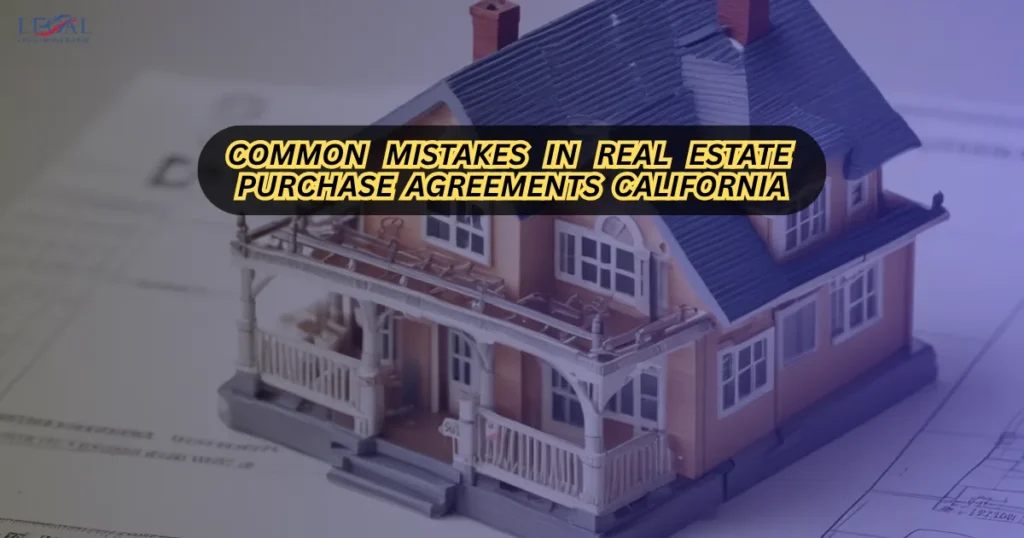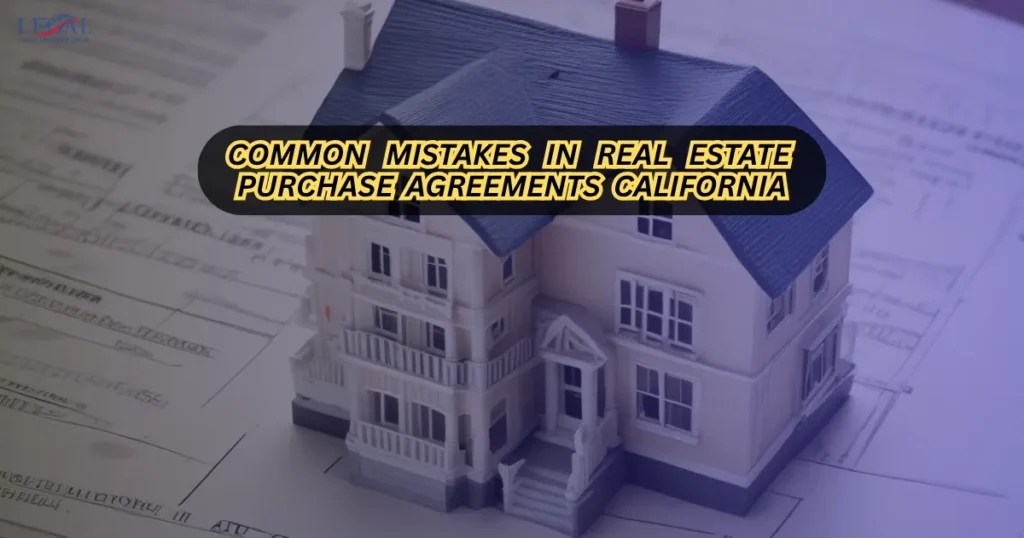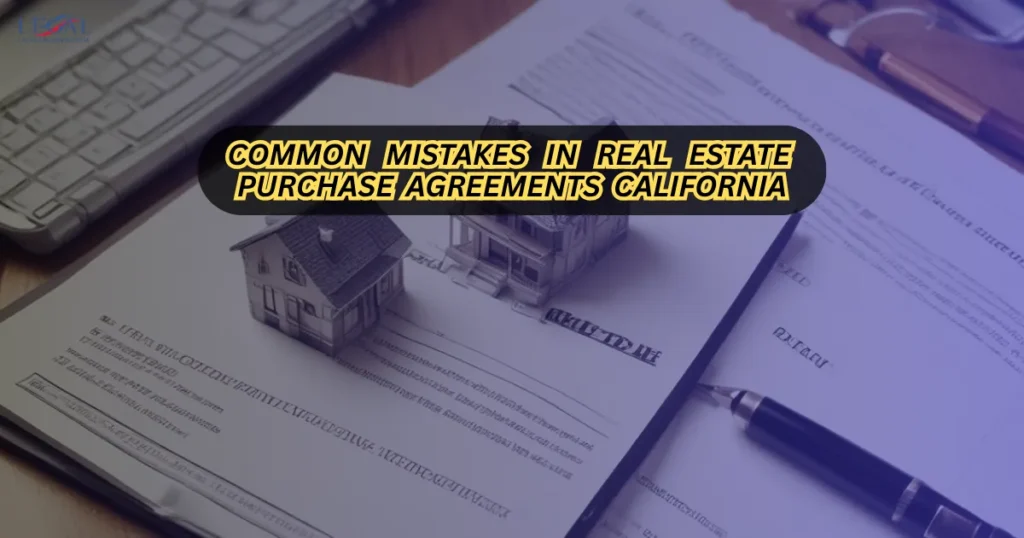Physical Address
304 North Cardinal St.
Dorchester Center, MA 02124
Physical Address
304 North Cardinal St.
Dorchester Center, MA 02124

Common mistakes in real estate purchase agreements California can derail your property deal, cost thousands in unexpected fees, or even void the agreement entirely. Whether you’re a first-time buyer, an experienced seller, or a real estate investor, understanding the pitfalls in California’s purchase contracts is critical to protecting your investment and ensuring a smooth closing.

Imagine finding the perfect home, making a competitive offer, and getting it accepted—only to have your deal collapse because of a missed contingency deadline or an overlooked disclosure requirement. In California’s competitive real estate market, contracts are detailed and legal obligations are strict. The good news? By learning from others’ mistakes and recognizing warning signs, you can navigate your agreement confidently from offer to closing.
For more detailed California real estate contract guidance, visit our homepage. You can also explore our California Real Estate Resources Center.
A real estate purchase agreement is a legally binding document that defines the terms of a property sale in California. It includes specifics on price, contingencies, disclosures, timelines, and closing procedures. Standard agreements from the California Association of Realtors (CAR) are commonly used, and these contracts must align with state property laws.

Can a mistake in the purchase agreement void the deal?Yes, if it’s material and violates California property law or agreed terms.Who prepares the purchase agreement in California?Typically the buyer’s real estate agent using a CAR form, but both parties can propose changes.Can I correct a purchase agreement after signing?Yes, through a signed addendum or amendment agreed to by both parties.Are electronic signatures valid?Yes, California accepts e-signatures for most real estate contracts.
Recognizing and avoiding common mistakes in real estate purchase agreements California can protect your investment and ensure a smooth transaction. By paying attention to details, meeting deadlines, and leveraging professional guidance, you’ll be ready to sign with confidence and close without unnecessary setbacks.

Whether you’re a buyer or a seller, your purchase agreement is your roadmap—read it thoroughly, act proactively, and seek advice when in doubt.
For more California real estate contract tips and resources, visit our home page or our California Transaction Support Center.